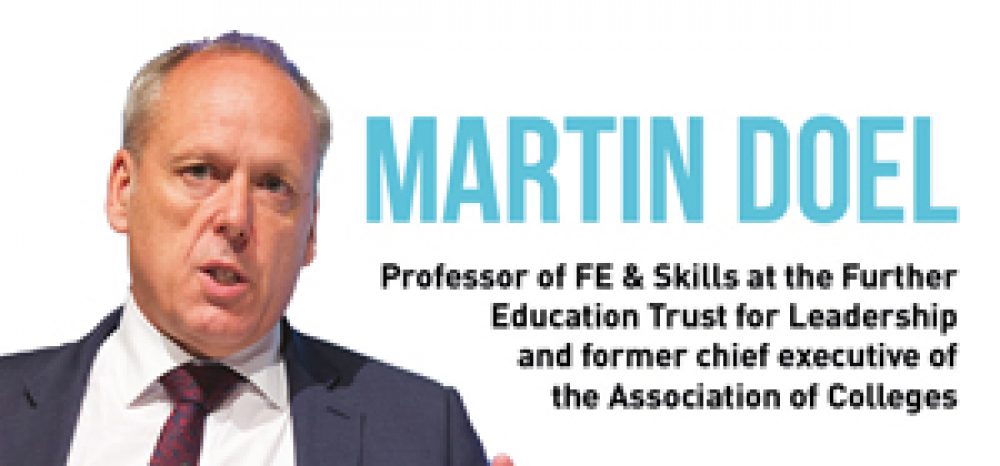The Organisation for Economic Development caught everybody’s eye with a report uncovering “poor” levels of adult numeracy while also questioning literacy skills. But, explains Martin Doel, there was another report earlier this month that was equally deserving of attention.
The Organisation for Economic Development (OECD) recently published a review of vocational education and training, covering core areas of colleges’ work. It was called A Skills Beyond School Review of England.
The report was notable for the positive way in which it characterised FE colleges as “entrepreneurial and flexible,” and the near total lack of interest it generated with the media and the government.
Perhaps this is because journalists and the government are more interested in negative stories than in positive endorsement of the achievements of colleges and training providers.
Indeed, the difficult messages in the report are more for the government and awarding organisations.
In the case of the government, the OECD report identified a relative lack of investment in tertiary education and a regulatory model that neither underpins true autonomy, nor provides a more directed and regulated model as seen in Germany and elsewhere on the continent.
In relation to awarding organisations, it identified an overly complex and expensive model of testing and assessment that confuses employers and means they stick with inappropriate academic qualifications when recruiting staff.
Based on these criticisms, a reasonable reader might conclude that the problem, if there is one, is not with colleges and providers, but with the system they are obliged to operate.
They achieve great things despite this system, rather than because of it. This, funnily enough, is the same conclusion that Ofsted chief inspector Sir Michael Wilshaw reached in his annual report last year — perhaps this is a case for more ‘rigour’ in policy-making and implementation, as well as within colleges and training providers?
But does all this really constitute a ‘burning platform’ from which we are being forced to jump?
I don’t think the OECD report identifies any such inferno, nor is one suggested by an apprenticeships completion rate of more than 70 per cent, which is a world-beating figure.
There is, of course, room and a need for continuous improvement, refinement and adjustment, but not for abrupt, disruptive, systemic change.
The much-lauded German dual system has changed significantly only twice in the last 50 years.
At my last count, our skills system has seen radical change at least 40 times within the same period.
It is hardly surprising students, parents and businesses say they are confused about how the system operates.
The only justification for a revolutionary rather than an evolutionary change is a clear and pressing imperative.
In my view there is no such urgent need in relation to the skills system.
This OECD report, the recent Confederation of British Industry report on rising satisfaction levels among employers and college performance against a range of benchmarks seem to confirm this view.
We need a considered and progressive programme of incremental, yet challenging, change, building upon past and current success, together with a need to adapt to meet new and emerging requirements.
Martin Doel, chief executive of the Association of Colleges








Your thoughts